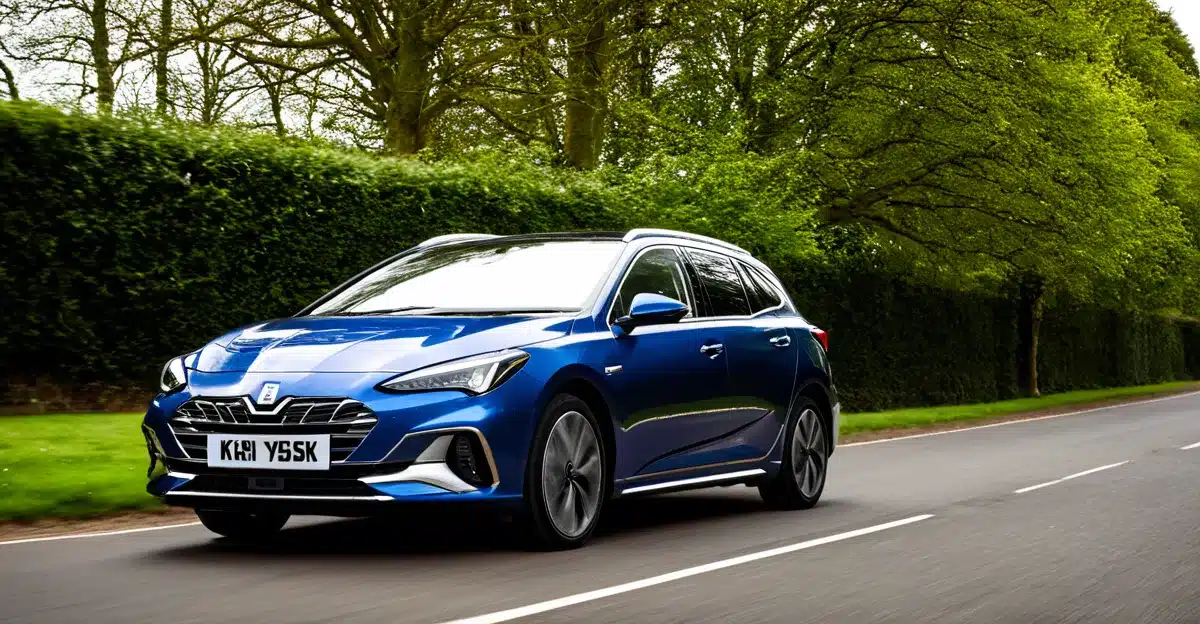Key Technologies for Hybrid Car Conversion in the UK
Hybrid conversion technology UK primarily involves retrofitting older petrol or diesel vehicles with advanced components that enable electric drive capabilities. Central to this process are hybrid car components such as high-capacity batteries, efficient electric motors, and sophisticated controllers that manage power distribution and regeneration.
Batteries used in retrofit kits are typically lithium-ion due to their favorable energy density and longevity. These batteries store electrical energy that powers the electric motor during low-speed driving or starts, significantly reducing fuel consumption. Electric motors provide supplementary propulsion to the vehicle’s original engine, often configured for smooth transition between gasoline or diesel power and electric drive, enhancing overall efficiency.
Also read : Decoding the maze: the ultimate guide to car finance choices in the uk
Controllers in hybrid conversion technology UK act as the system’s brain. They regulate how much power the electric motor delivers, when the battery charges or discharges, and coordinate the interface between the internal combustion engine and electric components. Compatibility is crucial: retrofit kits are designed considering engine type, vehicle weight, and drivetrain layout, ensuring harmonious operation with petrol and diesel cars common in the UK. This adaptability broadens the scope for eco-friendly upgrades across various aging vehicle models.
Legal, Environmental, and Regulatory Requirements
Hybrid car owners in the UK must navigate a framework of emissions standards UK that govern vehicle usage and conversion. These regulations ensure hybrid vehicles meet strict environmental benchmarks before they can legally be driven on public roads. A crucial requirement is obtaining the correct certifications and approvals for hybrid vehicle conversions, which verify that modifications adhere to safety and emissions limits.
Also to discover : Essential advice for buying a second-hand electric car in the uk: unmissable inspections you need to conduct!
Transport compliance in the UK further involves adherence to low-emission zone (LEZ) rules, particularly in urban centers like London, where hybrids must meet specific emission thresholds to avoid penalties. These zones are designed to reduce pollution, encouraging drivers to switch to cleaner transport options.
Importantly, regulations differ for personal and commercial vehicles. Commercial hybrids are often subject to more stringent testing and reporting requirements due to their higher road usage and associated emissions impact. Understanding these distinctions is vital for owners to maintain legal compliance and benefit fully from hybrid technology’s environmental advantages. Staying informed about these evolving standards protects both drivers and the environment while leveraging hybrid efficiency.
Step-by-Step Guide to Converting Your Car to Hybrid in the UK
Understanding the hybrid car conversion process clearly
The hybrid car conversion process begins with a crucial pre-assessment stage, where you evaluate if your vehicle is suitable for hybrid conversion. This involves checking the car’s engine condition, chassis, and electrical system compatibility. Older or heavily worn vehicles might not be ideal candidates, so this step ensures your investment is worthwhile.
Next comes sourcing parts. It’s vital to choose reputable UK suppliers and installers who specialize in hybrid conversions. Quality components like electric motors, battery packs, and control units affect performance and durability. Relying on trusted sources minimizes risks and supports warranty claims.
The technical installation process itself requires solid expertise. Tasks include integrating the electric motor with the existing engine, wiring the battery system, and calibrating the control software. Proper installation ensures safety and optimal fuel efficiency. If you’re taking on a UK DIY hybrid conversion, detailed knowledge of electrical systems and mechanical skills are essential. However, professional assistance is highly recommended to avoid common pitfalls and guarantee a successful conversion.
Costs, Savings, and Financial Incentives
Understanding the hybrid conversion cost UK involves considering several components: parts, labour, and certification. Typically, parts such as battery packs and electric motors form a significant portion of costs. Labour charges depend on the complexity of the vehicle and the workshop’s expertise, while certification ensures your hybrid meets UK regulations, which is crucial for legal compliance.
When assessing long-term savings UK, fuel efficiency improvements stand out. Hybrid vehicles generally consume less petrol or diesel, translating to notable fuel savings over time. Additionally, reduced wear on engine parts means lower maintenance costs compared to conventional vehicles, making the initial investment more worthwhile.
The UK government supports eco-friendly initiatives through various government grants and financial incentives. These often include grants for low-emission vehicles and tax reductions, helping to offset conversion expenses. Engaging with these schemes can significantly reduce your out-of-pocket hybrid conversion cost UK, aiding budget-conscious drivers.
For a practical financial overview, consider the initial hybrid conversion cost UK against ongoing fuel and maintenance savings, alongside available grants. This comprehensive view empowers informed decisions about investing in vehicle electrification.
Component Suppliers and Certified Installers in the UK
Trusted sources for hybrid parts and expert installation
When sourcing hybrid parts supplier UK, it’s essential to prioritize vendors known for quality and reliability. Trusted vendors often provide comprehensive product warranties, ensuring peace of mind. Look for suppliers specializing in hybrid conversion parts with clear UK-based operations to guarantee compatibility and after-sales support.
Selecting certified hybrid installers requires attention to qualifications and experience. Certified installers adhere to industry standards, employing specialized tools and techniques that protect your vehicle’s performance and safety post-conversion. Workshops recognized by professional bodies or hybrid technology associations typically meet stringent criteria, including technician training and evidence of past successful installations.
To make an informed decision, obtain multiple quotes and compare service warranties thoroughly. Transparent pricing combined with solid warranty terms safeguards your investment. Remember, a higher initial cost from a certified installer often translates to longer-term reliability and fewer issues. By coordinating with trusted vendors and certified hybrid installers, you ensure a seamless hybrid conversion backed by UK industry expertise.
Maintenance Implications and Potential Challenges
Understanding the ongoing care of hybrid vehicles after conversion
Hybrid maintenance UK presents unique considerations compared to traditional vehicles. After a conversion, the maintenance requirements shift significantly due to the integration of electric and combustion components. Owners often face post-conversion challenges such as managing battery health, monitoring complex electrical systems, and ensuring proper calibration between both powertrains. These challenges can increase the frequency and specificity of servicing.
Technical issues commonly arise from the complexity of hybrid systems. For example, electrical diagnostics may require specialized equipment that traditional garages might lack. Furthermore, regulatory compliance in the UK mandates adherence to emissions standards, which may complicate routine inspections post-conversion.
Access to reliable support and servicing for hybrid conversions is crucial. It’s advisable to engage garages experienced in hybrid technology, as they better understand troubleshooting hybrid-specific faults. Regular check-ups focusing on battery management systems and inverter functionality help prolong vehicle life and performance. Preparing for these maintenance nuances ensures smooth operation and maximizes the benefits of hybrid conversion in the UK.
Real-World Examples and Case Studies from UK Drivers
Insights from actual UK hybrid conversion projects
Several UK hybrid conversion stories offer invaluable lessons for those considering this upgrade. For instance, a driver in Manchester detailed the transition of a traditional petrol car into a hybrid using a popular electric motor kit. Their case study emphasized the importance of careful planning regarding battery placement to maintain vehicle balance and road legality.
Another user experience from London highlighted the challenges of sourcing compatible components, but praised the eventual improvement in fuel efficiency and smoother acceleration. These experiences underline that while the conversion process can be complex, the benefits are tangible with proper research.
Community resources are vital. Dedicated forums and local meetups provide ongoing support, tips, and even hands-on help for UK car owners embarking on hybrid conversions. These networks often share detailed build diaries and troubleshooting advice, making the process less daunting.
In summary, these case studies demonstrate that successful UK hybrid conversion projects depend on thorough preparation, access to reliable components, and active participation in supportive communities. Exploring such shared knowledge boosts confidence and improves outcomes for aspiring hybrid drivers.



